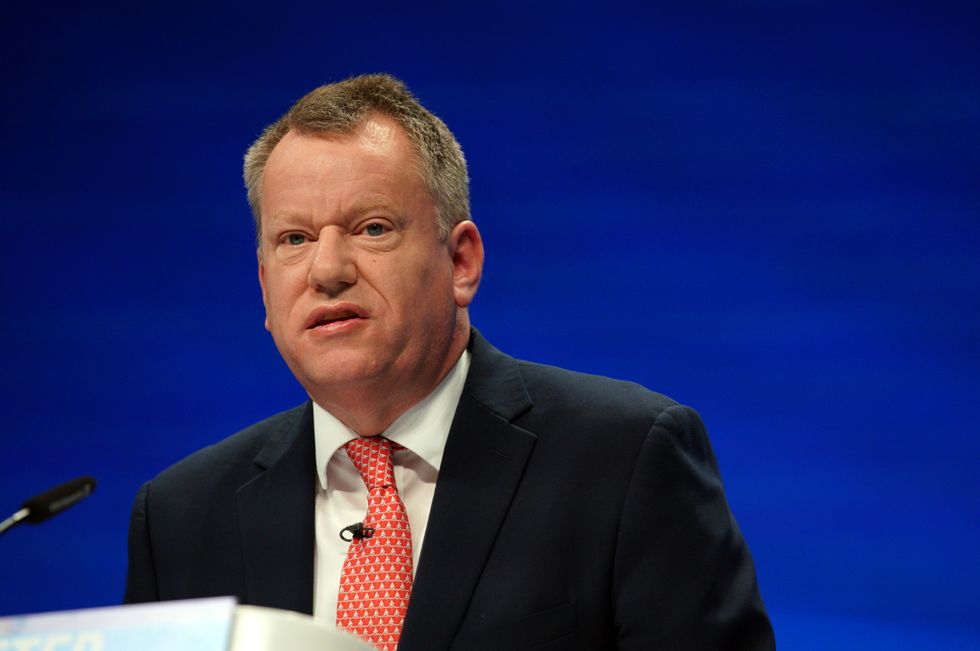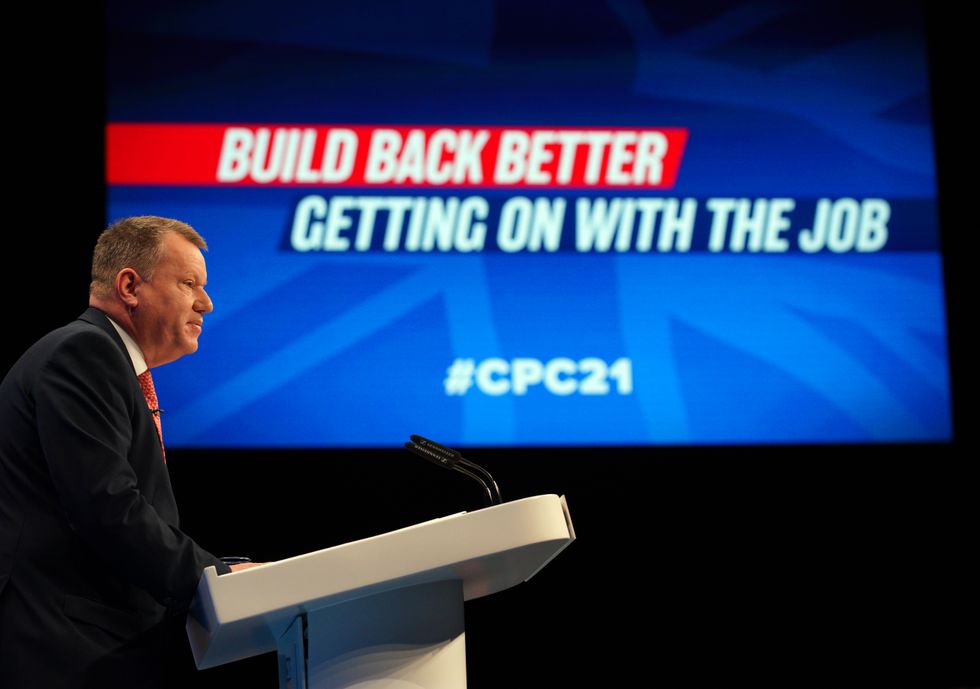Brexit: Lord Frost admits relationship with European Union still ‘a little bit bumpy’
The Brexit minister said the key issue surrounds the Northern Ireland Protocol.
Don't Miss
Most Read
Trending on GB News
There is “still quite a gap” between the UK and European Union in efforts to resolve the dispute over Northern Ireland’s post-Brexit arrangement, Lord Frost said.
The Brexit minister said “the core of the problem” is the amount of EU law which applies in Northern Ireland and consequently the role of the Luxembourg court.
Officials from the UK and EU are locked in talks over the Northern Ireland Protocol, with Lord Frost wanting the issue resolved this autumn “one way or the other” – a sign that he could effectively tear up parts of the deal if no resolution can be found.
The minister told a Lords committee that the relationship with Brussels “still is a little bit bumpy in various areas”, including fishing rights and the Horizon scientific research programme as well as the Northern Ireland Protocol.
But he acknowledged it was the Protocol which was the biggest sticking point.
“That is the key to putting things on a better footing. The mistrust that is generated by the Protocol is getting in the way of lots of other things,” he said.
There is “still quite a gap” between the UK and European Union in efforts to resolve the dispute over Northern Ireland’s post-Brexit arrangement, according to Lord Frost
Peter Byrne
In a reference to Michael Gove’s comparison of the Brexit process to a flight which encounters some turbulence before the “gin and tonic and peanuts” can be passed round, Lord Frost said if the Protocol issues can be resolved then “we will be in a better place quite quickly and we can get the drinks out”.
The UK and EU have both put forward proposals to address the dispute over the Protocol, the part of the Brexit divorce deal negotiated by Lord Frost and signed by Boris Johnson aimed at avoiding a hard border with Ireland.
“Our approach is that goods moving into Northern Ireland should be subject to, essentially, no processes and checks but that there are exceptions to that – most obviously goods that move on into Ireland.
“The (European) Commission’s approach is the reverse, which is that everything is subject to processes but things can be carved out of those processes.”
Lord David Frost, Minister of State at the Cabinet Office, speaks during the Conservative Party Conference in Manchester.
Peter Byrne
While those approaches could meet “the reality is there is still quite a gap”.
Another major issue is the role of the European Court of Justice.
“We don’t think it’s right, or likely to contribute to stability, for the Court of Justice to be resolving disputes between the two sides,” Lord Frost said.
“The problem is far too much EU law applies directly in Northern Ireland. That’s the core of the problem, we don’t see that so much of it should apply.”
He suggested that “one way of dealing with the problem” would be replication of EU law in domestic legislation.
Lord Frost acknowledged that ongoing disputes with France over issues including fishing licences, the Australian submarine deal and tackling migrants crossing the Channel could “colour” negotiations with the EU as it “has a lot of influence over the commission”.
It was “not something we are casual about and we would like to get things back to an even keel”, he added.
Lord Frost suggested that when full border controls are in operation for food and agricultural products moving between the EU and UK, the British authorities would operate a “light touch” regime.
“I would be surprised if, when we finally bring in these controls in January and July, we then do exactly the same thing as the EU does,” he said.
“I don’t think we would see their levels of checks on SPS (sanitary and phytosanitary) goods and live animals as entirely proportionate and might not do the same things ourselves.”
Lord Frost added that while the UK wanted a “well-managed, light-touch border” the EU’s customs code “does date from quite a long time back now and frankly a slightly different world”.
Ahead of talks with Lord Frost, Northern Ireland’s deputy First Minister Michelle O’Neill warned there is no alternative to the Protocol.
“The Protocol was the alternative to the backstop which was painstakingly negotiated, agreed and ratified by the Westminster Parliament and by the European Parliament by no less than David Frost himself, who is now trying to renegotiate,” she said. “It’s an international law, it must be respected.”









